- Home Page
- Company Profile
-
Our Products
- Fire Suppression Systems
- FK 5112 Suppression System
- Clean Agent Cylinderless System
- Clean Agent Cylinderless System for Car
- Wind Turbine Fire Detection and Suppression System
- Vehicle Fire Protection System
- Mild Steel Novec 1230 Fire Suppression System
- Fire Extinguishing System For Electrical Cabinets
- Aerosol Fire Suppression System
- Novec 1230 Flooding System
- Hfc 227ea Based Fire Suppression System
- Modular Clean Agent HFC236fa Extinguishers
- Aerosol Based Fire Suppression System
- FM200 Fire Suppression System
- Cylinder Less Tube Based Fire Detection Suppression Systems
- High Voltage Transformer Fire Suppression System
- Hfc227ea Clean Agent Fire Extinguishers
- Novec 1230 Clean Agent Suppression Systems
- Carbon Steel Fm 200 Fire Suppression System
- Direct Tube Based Fire Suppression System
- Novac 1230 Fire Flooding Systems
- Clean Agent Fire Suppression System
- Hfc 227ea Auto Fire Extinguishing System
- Car Fire Protection System
- Fire Suppression For Power Generators
- Hfc227ea Total Flooding System
- Dual Agent Retardant fire Suppression System
- Heat Sensing Tube
- Clean Agent Fire Suppression System for Wind Turbine
- Bus Engine Fire Protection System
- Fire Trace System
- Novec 1230 Fire Suppression System
- SEVO Tubing Suppression System
- Fire Detection And Fire Suppression System
- Heavy Vehicle Fire Suppression Systems
- Fire Sprinkler System Installation Service
- Vehicle Fire Suppression System
- Pre Engineered Fire Suppression System
- Server Rack Fire Suppression System
- Mild Steel Fire Suppression Systems
- Fire Suppression System (Capacitor Panel)
- Electrical Panel Detection Suppression System
- Fire Detection Tube Suppression System
- Fire Extinguishing System For Electrical Panel
- Electrical Panel Gas Suppression System
- Novec 1230 Fire Suppression System for Industrial
- Fm200 Gas Based Fire Suppression Systems
- FM200 Gas Based Fire Suppression Systems For Wind Turbines
- Tube Based Fire Suppression System
- Novec 1230 Fire Gas Suppression System For Electrical Panel
- Novec 1230 Fire Extinguishing System
- Novec 1230 Gas Suppression System For Wind Turbine Fire Suppression System
- Nitrogen Injection Transformer Fire Protection System
- Electrical Panel Fire Suppression System
- Dual Agent Retardant Fire Suppression System
- Diffusible FE36 Fire Suppression System
- Hazardous Cabinets Fire Suppression System
- Chemical Fire Suppression Systems
- Nitrogen NITFP System
- Automatic Fire Detection and Suppression System
- Novec 1230 Fire Suppression Systems
- Fire Suppression For Wind Turbines
- Bladder Tank Proportioning System
- Electrical Panel Fire Suppression
- Fk 5112 Fire Suppression System
- Fire Extinguishing Systems
- Fire Alarms And Detection Systems
- White Addressable Duct Detector
- UV IR Flame Detector
- Agni Sounder Hooter
- Addressable Fire Alarm System
- Fire Alarm System Amc Service
- Conventional Fire Alarm System
- Digital Addressable Fire Alarm System
- Aspirating Systems Smoke Detectors
- Agni Addressable Security Fire Alarm
- Fire Detection And Fire Alarm System
- Uv Ir Flame Detector System
- Ravel 2 zone Conventional Fire Alarm System
- Addressable Photoelectric Duct Detector
- Fire Alarm Sounder
- Fire Response Indicator
- Vesda Aspirating Smoke Detection System
- 4 Zone Addressable Fire Alarm System
- Ravel 4 zone Conventional Fire Alarm System
- Fire Detection Fire Alarm System
- Co2 Flooding/Suppression System
- High Pressure Co2 Automatic Fire Extinguishing System
- Co2 Gas Fire Suppression System
- CO2 Suppression System
- CO2 Fire Flooding
- ELECTRICAL PANEL CO2 FLOODING SYSTEM
- Automatic Pipeline Co2 Fire Suppression System
- Co2 Fire Flooding System
- Co2 Cylinder Fire Suppression System
- In Direct CO2 Flooding System
- Co2 Based Fire Suppression Systems
- Automatic CO2 Flooding System
- Automatic Co2 Flooding System
- Gas Based Co2 Flooding System
- Automatic Pipeline CO2 Fire Suppression System
- Co2 Fire Suppression System
- Passive Fire Protection
- Fire Extinguishers
- Twin Trolley Type Fire Extinguisher
- Co2 Fire Extinguisher Refilling Service
- Clean Agent Type Fire Extinguisher
- Amc For Fire Fighting System
- Co2 type fire Extinguisher
- Mild Steel Wet Chemical Fire Extinguisher
- Carbon Steel Abc Fire Extinguisher
- Automatic Ceiling Mounted D Type Fire Extinguisher
- Water Spray Sprinkler Systems
- Kanex Fire Extinguishers
- Fe36 Clean Agent Fire Extinguisher
- Modular Dry Chemical Powder Extinguishers
- Kitchen Fire Suppression System
- Kitchen Fire Suppression System
- Mild Steel Kitchen Fire Suppression
- Kitchen Hood Fire Suppression System
- Automatic Kitchen Fire Extinguishing System
- Kitchen Fire Extinguisher
- kitchen Nozzle Fire Suppression System
- Restaurant Kitchen Fire Suppression System
- Fire Suppression System For Commercial Kitchen
- Commercial Kitchen Fire Suppression System
- HW & MV Fire Protection System
- Commercial Gas Leak Detector
- Medium Velocity Water Spray System (MVWS)
- Transformer Fire Protection System
- Transformer Fire Prevention System
- Transformer Fire Suppression Systems
- Conveyor belt system fire protection system
- Nitrogen Injection Fire Protection System For Transformer
- High Velocity Water Spray System (HVWS)
- Fire Suppression Accessories
- Fire Hydrant System
- Clean Agent Gas Refilling
- Fire Fighting Foams
- Smoke Detector
- Ravel Beam Smoke Detector
- Addressable Photoelectric Smoke Detector
- Addressable Smoke Detector
- Fire Alarm Addressable Smoke Detector
- Battery Addressable Smoke Detector
- Polycarbonate Smoke Detector
- Agni Smoke Detector
- Conventional Optical Smoke Detectors
- Addressable Duct Smoke Detector
- Agni Wireless Smoke Detector
- White Polycarbonate Smoke Detector
- Manual Call Point
- Fire Retardant Fabric
- Fire Alarm Control Panel
- Heat Detector
- Beam Detectors
- Fire Door
- HW&MV Fire Protection
- Fire Cable Coating
- Fire Cable
- Public Address Systems
- Hydraulic Hose
- Fire Suppression Systems
- Contact Us
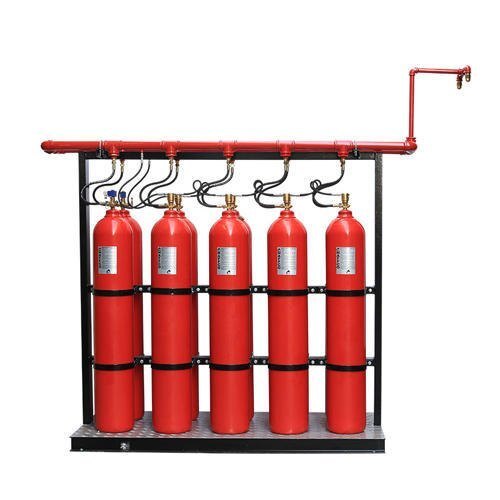
Electrical Panel Fire Suppression System
70000 INR/Piece
Product Details:
- Temperature Range CELSIUS Celsius (oC)
- Product Type FIRE SUPPRESSION SYSTEM
- Usage FIRE SUPPRESSION SYSTEM FOR ELECTRICAL PANEL
- Warranty 1 YEARS
- Material M.S
- Color RED
- Frequency HZ Hertz (HZ)
- Click to view more
X
Electrical Panel Fire Suppression System Price and Quantity
- 70000 INR/Piece
- 1 Piece
Electrical Panel Fire Suppression System Specification
- METER Meter (m)
- YES
- FIRE SUPPRESSION SYSTEM FOR ELECTRICAL PANEL
- KG Kilograms (kg)
- HZ Hertz (HZ)
- RED
- M.S
- WATT Watt (W)
- 1 YEARS
- FIRE SUPPRESSION SYSTEM FOR ELECTRICAL PANEL
- FIRE SUPPRESSION SYSTEM
- CELSIUS Celsius (oC)
Electrical Panel Fire Suppression System Trade Information
- Cheque
- 100 Piece Per Month
- 7 Days
- Yes
- Free samples available with shipping and taxes paid by the buyer
- LOT
- Asia
- All India
- ISO & CE CERTIFICATE
Product Description
An electrical panel fire suppression system is designed to protect electrical panels and associated equipment from the risk of fire. Electrical panels, also known as switchgear or distribution panels, are critical components of electrical systems in buildings, industrial facilities, and data centers. Fires in these panels can lead to significant damage, downtime, and safety hazards. Fire suppression systems for electrical panels are designed to detect and extinguish fires quickly to minimize the potential for damage and injury.
Here are some key components and features of an electrical panel fire suppression system:
1. Fire Detection: The system typically includes fire detection devices such as smoke detectors, heat detectors, or flame detectors. These sensors are strategically placed near or inside the electrical panels to detect the presence of fire or abnormal heat levels.
2. Suppression Agent: Fire suppression systems use various agents to extinguish fires. The choice of suppression agent depends on the specific requirements and the type of fire expected. Common agents include:
a. Clean Agents: These are non-toxic, electrically non-conductive gases such as FM-200, Novec 1230, or Inergen. They extinguish fires by removing heat from the fire triangle (heat, fuel, oxygen) and are suitable for protecting sensitive electronic equipment.
b. Dry Chemical Agents: Dry chemical agents like ABC powder or BC powder are effective at suppressing electrical fires by interrupting the chemical reaction that sustains the fire. However, they can leave residue and may not be suitable for all types of electrical equipment.
3. Release Mechanism: When a fire is detected, the system activates a release mechanism to discharge the suppression agent into the electrical panel. This can be done manually or automatically, depending on the systems design and configuration.
4. Isolation and Shutdown: Some systems are designed to isolate the affected electrical panel or equipment from the power source automatically when a fire is detected. This prevents electrical arcing and further damage.
5. Alarms and Notification: The system may include audible and visual alarms to alert occupants of the building to the presence of a fire. It may also notify building management or emergency services.
6. Maintenance and Testing: Regular maintenance and testing of the system are crucial to ensure its reliability. This includes inspecting sensors, checking suppression agent levels, and testing the activation mechanisms.
7. Regulatory Compliance: Electrical panel fire suppression systems are subject to various codes and standards, depending on the location and type of facility. Compliance with these regulations is essential for safety and insurance purposes.
FAQ:
Q. What is an electrical panel fire suppression system?
Ans: An electrical panel fire suppression system is a specialized fire protection system designed to detect and extinguish fires that may occur within electrical panels or switchgear. These systems are critical for safeguarding electrical equipment and preventing fires that could lead to significant damage or safety hazards.
Q. Why do I need an electrical panel fire suppression system?
Ans: Electrical panels contain various components that can overheat or malfunction, potentially leading to fires. These systems are essential to protect your facility, minimize downtime, and ensure the safety of occupants.
Q. What types of fires can these systems suppress?
Ans: Electrical panel fire suppression systems are primarily designed to suppress electrical fires, including Class C fires, which involve energized electrical equipment. They can also help mitigate Class A fires (ordinary combustibles) that may occur in or around the panel due to the electrical fires heat.
Q. What are the common suppression agents used in these systems?
Ans: Common suppression agents include clean agents like FM-200, Novec 1230, and Inergen, as well as dry chemical agents like ABC powder or BC powder. The choice of agent depends on the type of equipment and the fire risk.
Q. How do these systems detect fires in electrical panels?
Ans: Fire detection in electrical panels is typically done using smoke detectors, heat detectors, or flame detectors. These sensors are strategically placed to monitor for signs of fire or abnormal heat levels.
Q. Can these systems be integrated with existing fire alarm systems?
Ans: Yes, electrical panel fire suppression systems can often be integrated with existing fire alarm and building management systems. Integration allows for coordinated responses and better overall fire safety.
Q. What maintenance is required for these systems?
Ans: Regular maintenance is crucial to ensure the systems reliability. Maintenance tasks include inspecting sensors, testing activation mechanisms, checking suppression agent levels, and ensuring that all components are in working order.
Q. How are these systems activated in case of a fire?
Ans: Activation can be either manual or automatic. In automatic systems, when the sensors detect a fire, they trigger the release of the suppression agent. In manual systems, a person activates the system upon discovering a fire.
Q. Do these systems disconnect power to the affected electrical panel?
Ans: Some systems may include mechanisms to isolate or shut down power to the affected panel automatically when a fire is detected. This can help prevent electrical arcing and further damage.
Q. Are there regulations and standards for electrical panel fire suppression systems?
Ans: Yes, various codes and standards, such as NFPA 70E and NFPA 72, govern the design, installation, and maintenance of electrical panel fire suppression systems. Compliance with these regulations is essential for safety and insurance purposes.
Q. What should I consider when selecting a supplier or installer for a fire suppression system?
Ans: Its crucial to work with reputable suppliers and installers who have experience in designing and installing these systems. Ensure they are knowledgeable about local regulations and standards and can provide ongoing maintenance and support.
FAQs of Electrical Panel Fire Suppression System:
Q: What is the weight of the Electrical Panel Fire Suppression System?
A: The weight of the Electrical Panel Fire Suppression System is KG Kilograms (kg).Q: What is the input power requirement for the system?
A: The input power requirement for the system is WATT Watt (W).Q: What is the material used for the system?
A: The material used for the system is M.S.Q: What are the dimensions of the system?
A: The dimensions of the system are METER Meter (m) (L*W*H).Q: What is the warranty period for the system?
A: The warranty period for the system is 1 YEAR.Tell us about your requirement

Price:
Quantity
Select Unit
- 50
- 100
- 200
- 250
- 500
- 1000+
Additional detail
Mobile number
Email
Other Products in 'Fire Suppression Systems' category
" We mainly want inquiries from Gujarat, Rajasthan, Madhya Pradesh, Maharashtra, Goa. "


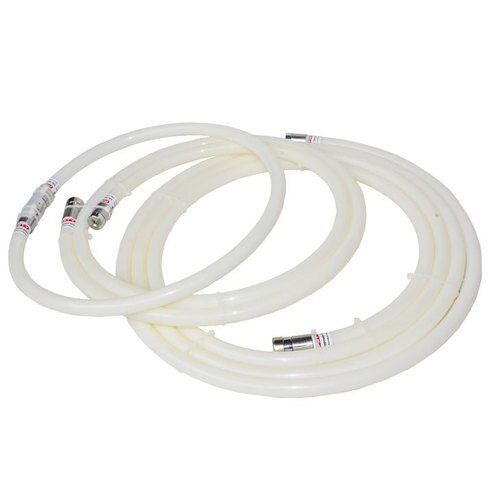
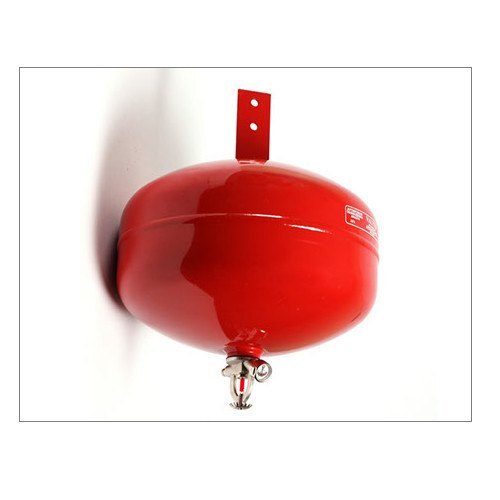
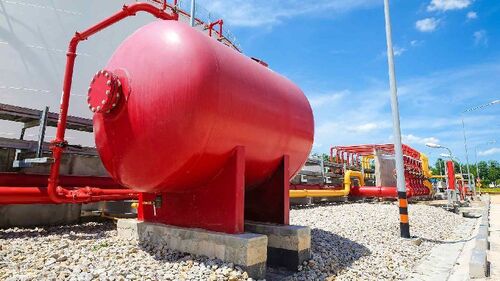
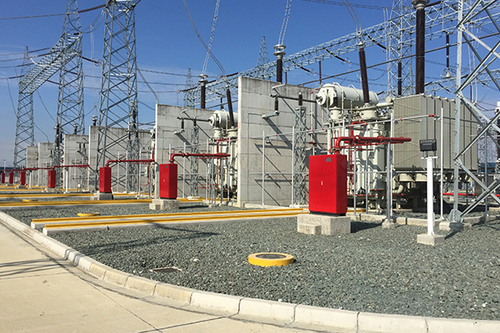

 English
English Spanish
Spanish French
French German
German Italian
Italian Chinese (Simplified)
Chinese (Simplified) Japanese
Japanese Korean
Korean Arabic
Arabic Portuguese
Portuguese